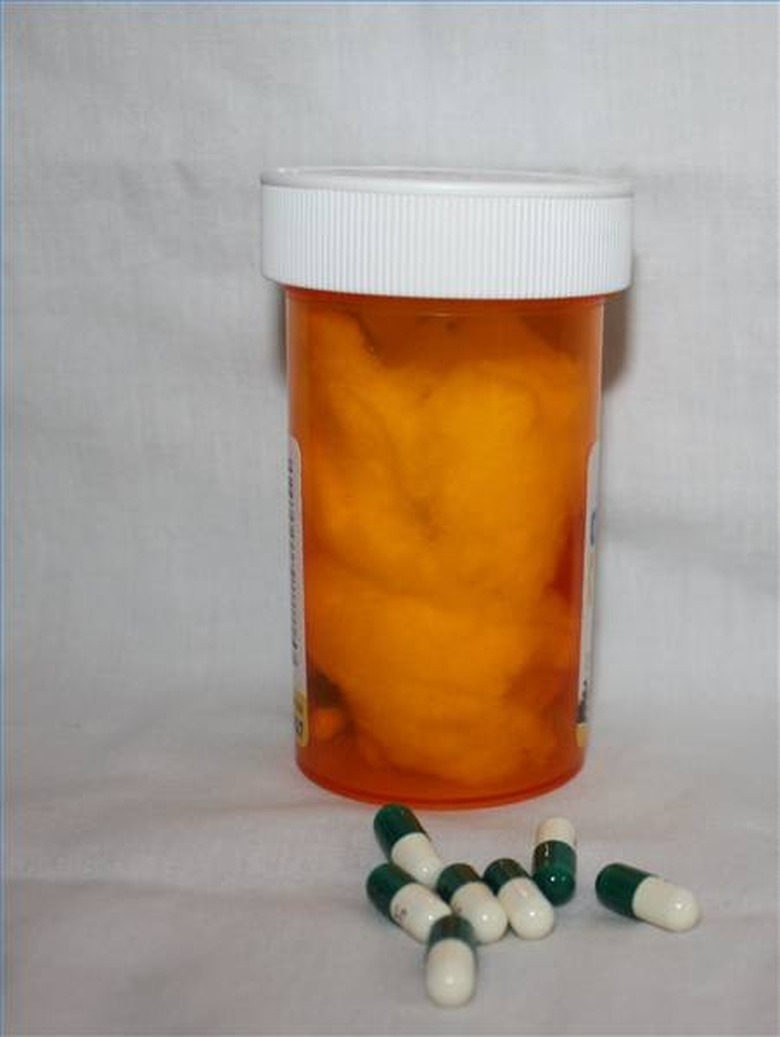Thyroid Failure & What Causes It
When the thyroid gland fails the body's functioning also will fail. The thyroid gland is a small, U-shaped organ in the mid-neck region. Its normal function is to produce three hormones: thyroxine (T4), triiodothyronine (T3) and calcitonin. T4 and T3 are involved in the body's metabolism. They stimulate almost every cell in the body, which in turn affects vital body functions. Sometimes the thyroid gland fails to function leading to a condition called hypothyroidism.
Effects
Effects
When the thyroid gland fails the body gradually will cease to function properly. This gradual decline in functioning sometimes can be mistaken for depression or dementia in older adults. Signs of thyroid failure include dulled facial expression, puffy eyes and face, voice changes (hoarseness or slow speech), muddled thinking, weight gain, hair loss, and skin changes such as dryness or flaking. Untreated thyroid gland failure can lead to coma and death.
Hashimoto's thyroiditis
Hashimoto's thyroiditis
The most common cause of thyroid failure is Hashimoto's thyroiditis. For unknown reasons, the body attacks the thyroid gland with white blood cells and antibodies. This is called an autoimmune reaction. This reaction destroys the thyroid gland tissue. The thyroid gland eventually becomes unable to produce the necessary thryoid hormones. Hashimoto's thyroiditis often occurs with other endocrine disorders such as diabetes or with other autoimmune diseases such as rhuematoid arthritis. It is a common disease in older women and in people with Down syndrome. About 50% of people with Hashimoto's thyroiditis eventually will have thyroid failure.
Thyroiditis
Thyroiditis
Thyroid failure also can occur as a result of a non-autoimmune inflammation of the thyroid gland. Viruses or bacteria can infect the thyroid gland causing the gland to become painful and enlarged. A sore throat and jaw or ear pain also may be present. Some cases of thyroiditis have an increased level of thyroid hormone production (hyperthyroidism) followed by a failure of the thyroid gland. However, in most instances once the initial cause of thyroiditis is erradicated thyroid function will return to a normal level.Occasionally, ingestion of certain prescription drugs can induce a non-painful thyroiditis.
Hypothalamus or Pituitary Failure
Hypothalamus or Pituitary Failure
Thyroid hormone production is regulated by the hypothalamus and pituitary gland. The hypothalamus is the part of the brain that lies above the pituitary gland. The hypothalamus releases thyrotropin releasing hormone (TRH), which stimulates the pituitary gland to release thyroid stimulating hormone (TSH). TSH then stimulates the thyroid gland to release the thyroid hormones. When enough thyroid hormone has been released it will inhibit the production of both TRH and TSH. Failure of the hypothalamus or the pituitary gland will disrupt this delicate process, leading to thyroid failure.
Iodine deficiency
Iodine deficiency
An important component of thyroid hormone is iodine. Iodine is an important dietary nutrient and many developing countries have diets deficient in this nutrient. Iodine is used by the thyroid gland to produce T4 and T3. If the diet is deficient in iodine, the thyroid gland will continue to try to produce T4 and T3 and become enlarged. An enlarged thyroid can become so big that it can cause massive neck swelling.
Other illnesses
Other illnesses
A severe illness elsewhere in the body also can cause thyroid failure. This is called sick euthyroid syndrome. T3 becomes decreased but TSH and T4 levels are generally normal. Most patients with sick euthyroid sydrome are carefully monitored for thyroid failure, but are not treated with thyroid hormones. If the sick patient recovers or his health becomes stable, thyroid function generally will return to normal.
Cite This Article
MLA
Nelson, Dr. Melissa. "Thyroid Failure & What Causes It" sciencing.com, https://www.sciencing.com/thyroid-failure-causes-5070495/. 24 April 2017.
APA
Nelson, Dr. Melissa. (2017, April 24). Thyroid Failure & What Causes It. sciencing.com. Retrieved from https://www.sciencing.com/thyroid-failure-causes-5070495/
Chicago
Nelson, Dr. Melissa. Thyroid Failure & What Causes It last modified August 30, 2022. https://www.sciencing.com/thyroid-failure-causes-5070495/
